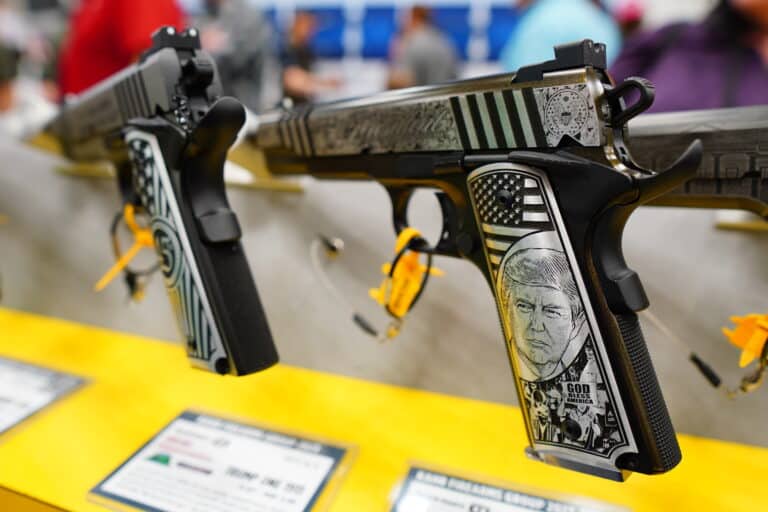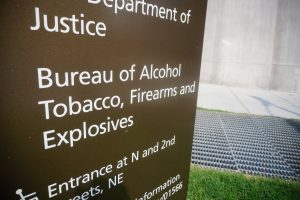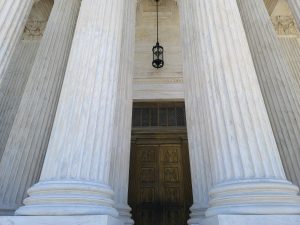“I GOT A PARDON BABY! THANK YOU PRESIDENT TRUMP!!! NOW I AM GONNA BUY SOME MOTHA FU*KIN GUNS!!!”
That’s the message Jake Angeli-Chansley, better known as the “QAnon Shaman,” posted on Monday night. In 2021, Angeli-Chansley pled guilty to a non-violent charge for his high-profile involvement in the January 6th Capitol Riot, and a federal judge sentenced him to several years in prison. President Donald Trump’s decision to pardon him and more than 1,500 others, including hundreds of those convicted of assaulting police or other violent offenses, restores gun rights to the people who stormed the Capitol Building in a failed effort to keep Trump in power after he lost the 2020 election.
“This is a big one,” Trump said while signing the pardons.
Alongside Ageli-Chansley, Trump pardoned the man who infamously tasered Capitol Police Officer Michael Fanone in the neck during the assault. Daniel Joseph “DJ” Rodriguez, who wielded the taser against Fanone, is among those who received a full pardon. So, too, are the men convicted of beating a police officer with a flag pole flying the American flag, crushing an officer in a doorway, the men who pepper-sprayed officer Brian Sicknick, as well as many other offenders.
The pardons represent Trump following through on a campaign promise to free what he referred to as “hostages,” though they go further than either his Vice President or the Republican Speaker of the House said Trump ought to go. They also brought on fierce criticism of Trump, including from within his own party, just a day into his new administration. It also reduces whatever deterrent effect the prosecutions of those who used violence to try and impose their preferred political outcome after the 2020 election may have had.
The pardons also follow Former President Joe Biden’s decision to pardon his son, Hunter Biden, of a gun conviction and an additional 39 people for non-violent crimes in December, which also restored their gun rights.
Trump also commuted the sentences of 14 people who were convicted of some of the most serious offenses related to the January 6th riot, including those who conspired to breach the Capitol by force ahead of the election certification ceremony. Those commutations mean the offenders will be released from prison, but their convictions will not be wiped clean, and federal law will still prohibit them from possessing firearms. Similarly, the 1,500 offenders and the death row inmates who saw their sentences commuted by Biden before the end of his term will not have their gun rights restored.
Trump further ordered the Department of Justice to drop all pending cases against those who breached the Capitol Building in 2021, which could affect upwards of 300 hundred cases.
Under Federal Law, anyone convicted of a federal or state felony or a misdemeanor punishable by more than a year in prison can no longer legally possess firearms. That prohibition extends to both violent and non-violent felons, though some non-violent offenders have successfully challenged their prohibited status in court under the Second Amendment in recent years. However, the president’s power to pardon anyone convicted of a federal crime is broad and effectively undoes the conviction and all of its legal consequences.
Ironically, President Trump remains a convicted felon because the pardon power does not extend to state crimes. While the Department of Justice has a standing policy against prosecuting a sitting president for any crime, unlike the January 6th offenders he’s pardoned, Trump is technically still prohibited from owning or even possessing firearms–at least on paper.
UPDATE 1-25-2025 9:31 AM EASTERN: This piece has been corrected to show any misdemeanor punishable by a year, not two years, in prison prohibits someone from owning a gun.






